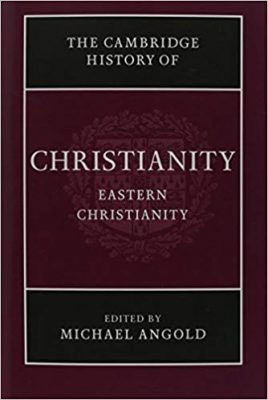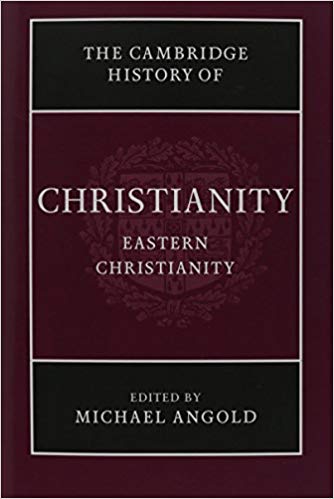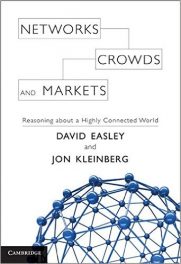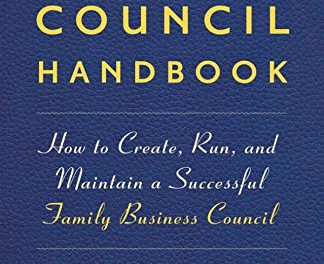 Volume 1: Origins to Constantine – 740 pages
Volume 1: Origins to Constantine – 740 pages
Editors: Margaret M. Mitchell and Frances M. Young
Volume 2: Constantine to 600 – 758 pages
Editors: Augustine Casiday and Frederick W. Norris
Volume 3: Early Medieval Christianities – c. 600 – 1100 – 846 pages
Editors: Thomas F. X. Noble and Julia M. H. Smith
Volume 4: Christianity in Western Europe c. 1100-1500 – 577 pages
Editors: Miri Rubin and Walter Simons
Volume 5: Eastern Christianity – 722 pages
Editor: Michael Angold
Volume 6: Reform and Expansion – 1500-1600 – 749 pages
Editor: R.Po-Chia Hsia
Volume 7: Enlightenment, Reawakening and Revolution – 1660-1815 – 678 pages
Editors: Stewart J. Brown and Timothy Tackett
Volume 8: World Christianities – c.1815-1914 – 683 pages
Editors: Sheridan Gilley and Brian Stanley
Volume 9: World Christianities – c.1914-2000 – 717 pages
Editor: Hugh McLeod
Publisher: Cambridge University Press – 6,470 total pages
Book Review by: Sonu Chandiram
This work of nine volumes is a comprehensive chronological account of the development of Christianity in its intellectual, regional and global, political and social, and theological aspects from its beginnings to the present day.
Each of the nine volumes comprising this monumental work represents a significant and substantial contribution in its own right to the scholarship of its period and the complete History constitutes a major work of academic reference.
Far from being merely a history of Western European Christianity and its offshoots, this work provides a global perspective, and includes Eastern and Coptic Christianity that are given full consideration from the early period onwards.
African, Far Eastern, New World, South Asian and other non-European developments in Christianity are also covered. The volumes also cover piety and non-formal expressions of Christian faith and treat the sociology of Christian formation, worship and devotion in a broad cultural context.
Christianity originated with the ministry of Jesus in the first century Roman province of Judea. According to the Gospels, Jesus was a Jewish teacher and healer who proclaimed the imminent Kingdom of God, and was crucified at c.30–33 AD.
One of the most important missionaries was the apostle Paul, a former persecutor of Christians. Paul’s conversion to Christianity after he had a supernatural encounter with Jesus is described in Acts of the Apostles. Paul preached the gospel and established churches throughout the Roman Empire, Europe and Africa.
The information in the two paragraphs above is based on Wikipedia articles that are authored by various people.
For book reviews here in the Books section of BIZ INDIA Online News, we refer to information found in various sources. One of them is History.com. According to this source, these are the basic facts about Christianity:
Christianity is the most widely practiced religion in the world, with more than 2 billion followers. The Christian faith centers on beliefs regarding the birth, life, death and resurrection of Jesus Christ. While it started with a small group of adherents, many historians regard the spread and adoption of Christianity throughout the world as one of the most successful spiritual missions in human history.
Some basic Christian concepts include:
- Christians are monotheistic – they believe there’s only one God, and he created the heavens and the earth. This divine Godhead consists of three parts: the father (God himself), the son (Jesus Christ) and the Holy Spirit.
- The essence of Christianity revolves around the life, death and Christian beliefs on the resurrection of Jesus. Christians believe God sent his son Jesus, the messiah, to save the world. They believe Jesus was crucified on a cross to offer the forgiveness of sins and was resurrected three days after his death before ascending to heaven.
- Christians contend that Jesus will return to earth again in what’s known as the Second Coming.
- The Holy Bibleincludes important scriptures that outline Jesus’ teachings, the lives and teachings of major prophets and disciples, and offer instructions for how Christians should live.
- Both Christians and Jews follow the Old Testament of the Bible, but Christians also embrace the New Testament.
- The cross is a symbol of Christianity.
- The most important Christian holidays are Christmas(which celebrates the birth of Jesus) and Easter (which commemorates the resurrection of Jesus).
Who was Jesus? Most historians believe that Jesus was a real person who was born between 2 B.C. and 7 B.C. Much of what scholars know about Jesus comes from the New Testament of the Bible. According to the text, Jesus was born to a young Jewish virgin named Mary in the town of Bethlehem, south of Jerusalem in modern-day Palestine. Christians believe the conception was a supernatural event, with God impregnating Mary via the Holy Spirit.
Very little is known about Jesus’ childhood. Scriptures reveal that he grew up in Nazareth, he and his family fled persecution from King Herod and moved to Egypt, and his “earthly” father, Joseph, was a carpenter. Jesus was raised Jewish, and according to most scholars, he aimed to reform Judaism, not create a new religion.
Basic Christian teachings include the following:
- Love God.
- Love your neighbor as yourself.
- Forgive others who have wronged you.
- Love your enemies.
- Ask God for forgiveness of your sins.
- Jesus is the Messiah and was given the authority to forgive others.
- Repentance of sins is essential.
- Don’t be hypocritical.
- Don’t judge others.
- The Kingdom of God is near. It’s not the rich and powerful—but the weak and poor—who will inherit this kingdom.
This work of nine volumes is an outstanding contribution to the study of Christianity by the 15 editors named below, as well as numerous contributors living all over the world.
Editors:
Margaret M. Mitchell is Professor of New Testament and Early Christian Literature at the University of Chicago. She is the author of Paul and the Rhetoric of Reconciliation: An Exegetical Investigation of the Language and Composition 1 Corinthians and The Heavenly Trumpet: John Chrysostum and the Art of Pauline Interpretation, and is co-executive editor of the Novum Testamentum Supplements, a series of monographs.
Frances M. Young is a Fellow of the British Academy and received an Order of the British Empire (OBE) for services to Theology in 1998. She became Professor and Head of the Department of Theology at the University of Birmingham in 1986, Dean of the Faculty of Arts in 1995, served as Pro Vice-Chancellor from 1997 to 2000, and is now the Emerita Professor of Theology. Her many publications include From Nicaea to Chalcedon and Biblical Exegesis and the Formation of Christian Culture, as well as more popular works such as The Making of Creeds, Can These Dry Bones Live? and Face to Face.
Augustine Casiday is Lecturer in Historical Theology in the Department f Theology and Religious Studies at the University of Wales in Lampeter. He is the author of Evagrius Ponticus (2006) and Tradition and Theology in St. John Cassian (2006) and is assistant editor of The Cambridge History of Early Christian Literature (2004).
Frederick W. Norris is Professor Emeritus of World Christianity at Emmanuel School of Religion. He is the author of over 200 articles, associate editor with Everett Ferguson of the Encyclopedia of Early Christianity (1990) and co-editor with A. Matherbe and J. Thompson of The Early Church in Its Context (1998).
Thomas F.X. Noble is Robert M. Conway Director of the Medieval Institute and Professor History at the University of Notre Dame. He previously held positions at Texas Tech University and at the University of Virginia, as well as several prestigious fellowships in both the United States and Europe. He has written or edited six books and over thirty book chapters or journal articles.
Julia M.H. Smith is Edwards Professor of Medieval History at the University of Glasgow. She is a Fellow of the Royal Historical Society and has previously taught at Trinity College in Hartford, Connecticut and at the University of St. Andrews in the United Kingdom. Professor Smith has written numerous journal articles and is the author or editor of four books including most recently, Europe After Rome: A New Cultural History, 500 – 1000 (2000).
Miri Rubin is Professor of Medieval History at Queen Mary, University of London. His most recent publications include: Mother of God: A History of the Virgin Mary (2009) and The Hollow Crown: A History of Britain in the Late Middle Ages (2005).
Walter Simons is Associate Professor in the Department of History at Dartmouth College in Hanover, New Hampshire. He is the author of Cities of Ladies: Beguine Communities in the Medieval Low Countries 1200-1565 (2001) and co-editor of Ludo J. R. Milis, Religion, Culture and Medieval Low Countries: Selected Essays (2005) with Jeroen Deploige, Martine De Reu and Steven Vanderputten and The Productivity of Urban Space in Northern Europe (2002) with Peter Arnade and Martha Howell.
Michael Angold is a Fellow of the Royal Historical Society and is Professor Emeritus of Byzantine History at the University of Edinburgh in the United Kingdom. His most recent publications include: The Fourth Crusade: Event and Context (2003), Byzantium: The Bridge from Antiquity to the Middle Ages (2001) and Church and Society in Byzantium Under the Co neni 1081-1265 (1995)
Po-Chia Hsia is Edwin Erle Sparks Professor of History and Religious Studies at Pennsylvania State University His many publications include The World of Catholic Renewal 1540-1770, 2nd edition (2005)
Stewart J. Brown is Professor of Ecclesiastical History at the University of Edinburgh. His publications include: William Robertson and the Expansion of Empire (1997) and The National Churches of England, Ireland and Scotland 1801-1846 (2001).
Timothy Tackett is Professor of History at the University of California, Irvine. His publications include: Priest and Parish in Eighteenth-Century France (1977) and Religion, Revolution, and Regional Culture (1986).
Sheridan Gilley is Emeritus Reader in Theology at Durham University in the United Kingdom. He is the author of Newman and His Age (republished, 2001) and of numerous articles on modern religious history. He is co-editor with Roger Swift, of The Irish in the Victorian City (1985), The Irish in Britain: 1815–1939 (1989) and The Irish in Victorian Britain (1999), and with W. J. Shields, A History of Religion in Britain (1994)
Brian Stanley is Director of the Henry Martyn Center for the Study of Mission and World Christianity in the Cambridge Theological Foundation and a Fellow of St. Edmund’s College in Cambridge. He has written and edited a number of books on the modern history of Christian missions, including The Bible and the Flag (1990), The History of the Baptist Missionary Society 1791-1992 (1992), Christian Missions and The Enlightenment (2001) and Missions, Nationalism, and the End of Empire (2003).
Hugh McLeod is Professor of Church History at the University of Birmingham. His publications include: Piety and Poverty: Working Class Religion in Berlin, London and New York 1870-1914 (1996) and Secularism in Western Europe (2000). He is president of CIHEC, the international organization of historians of Christianity.







